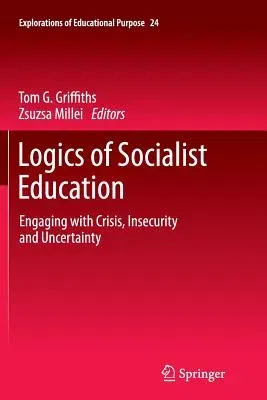For some, socialism is a potent way of achieving economic, political and
social transformations in the twenty-first century, while others find
the very term socialism outdated. This book engages readers in a
discussion about the viability of socialist views on education and
identifies the capacity of some socialist ideas to address a range of
widely recognized social ills. It argues that these pervasive social
problems, which plague so-called 'developed' societies as much as they
contribute to the poverty, humiliation and lack of prospects in the rest
of the world, fundamentally challenge us to act. In our contemporary
world-system, distancing ourselves from the injustices of others is
neither viable nor defensible. Rather than waiting for radically new
solutions to emerge, this book sees the possibility of transformation in
the reconfiguration of existing social logics that comprise our modern
societies, including logics of socialism.
The book presents case studies that offer a critical examination of
education in contemporary socialist contexts, as well as reconsidering
examples of education under historical socialism. In charting these
alternatives, and retooling past solutions in a nuanced way, it sets out
compelling evidence that it is possible to think and act in ways that
depart from today's dominant educational paradigm. It offers
contemporary policy makers, researchers, and practitioners a cogent
demonstration of the contemporary utility of educational ideas and
solutions associated with socialism.
A pioneering collection of essays which is central to understanding the
historical and contemporary meanings of socialism in the context of
neoliberal globalization. It is a most timely contribution to a growing
intellectual project that challenges the hegemony of capitalism, while
re-thinking and theorizing alternatives.
Iveta Silova, Associate Professor of Comparative Education, Lehigh
University, Bethlehem, PA, USA
*In this significant contribution to recent scholarship the authors use
the lens of socialist education to offer an original critique of
hegemonic capitalism, and present an intellectually rigorous search for
alternatives by reconsidering historical socialism and advancing
promising educational experiments that challenge the 'global
architecture of education'.
*
Anders Breidlid, Professor of International Education and Development,
Oslo University College, Norway


